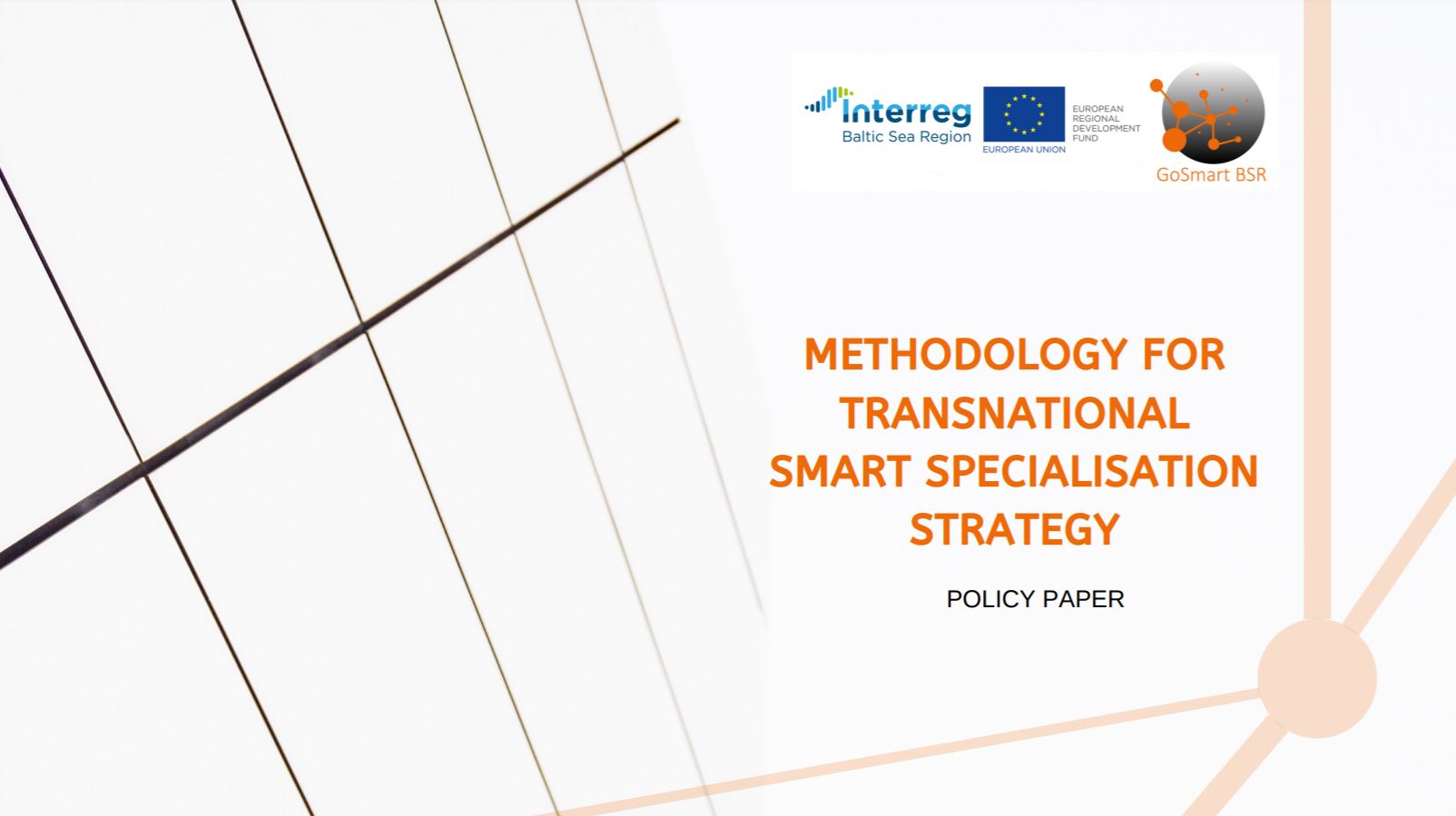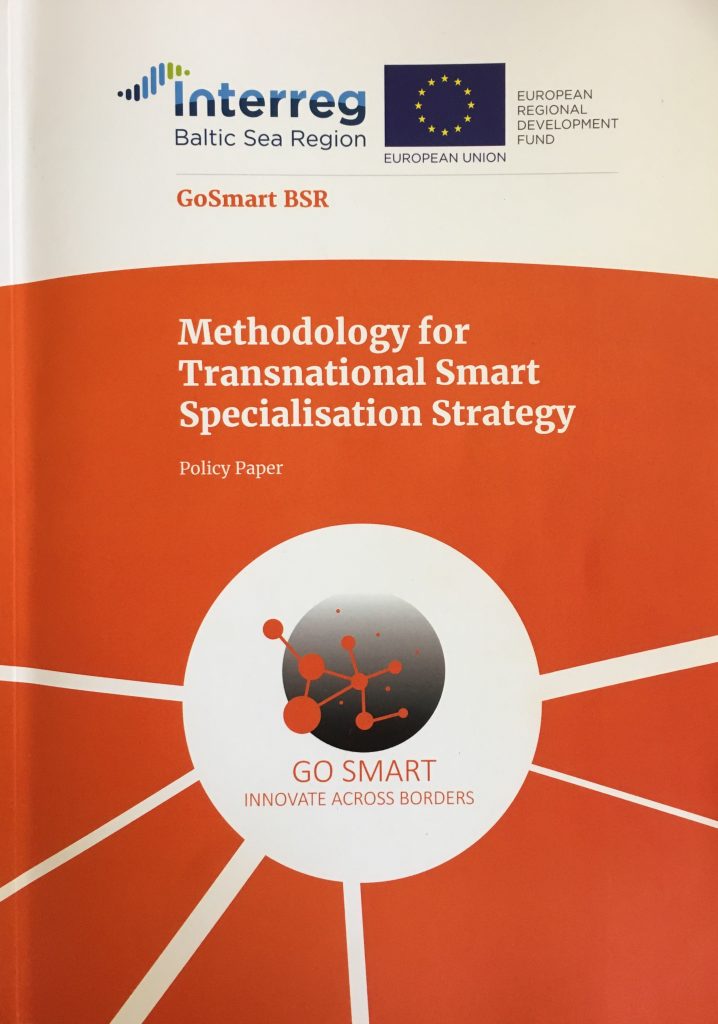Smart specialisation strategies (S3) are considered a new and promising policy tool for building more knowledge-based and more competitive economies. Elaborating and implementing these strategies can benefit regional and national economic structures by more business and research community interactions, increased investments, attracting talent to innovation centres, and more intensive collaboration among small and medium-sized enterprises (SMEs), leading to stronger economic performance.
For smart specialisation to become effective policy concept to take regions and their economies to higher, more productive and competitive levels, appropriate instruments are needed.
Seven regions of Denmark, Estonia, Finland, Germany, Latvia, Lithuania and Poland have teamed up in a project “GoSmart BSR” and worked out common smart specialisation priorities and specific domains which are considered ‘opportunity areas’ of establishing joint, globally competitive positions. As a result, methodological proposal for Transnational Smart Specialisation Strategy (Trans-S3) had been elaborated that will serve as a useful policy tool for internationalisation and innovation at the transnational level.
Trans-S3 methodology can be widely used in situations when group of regions attempt to intensify their collaboration based on the smart specialisation concept. The Trans-S3 methodology allows transitioning from the concept of a competitive region to the concept of a competitive group of regions.
One of the seven partners involved in developing Trans-S3 methodology is Vidzeme Planning Region in Latvia. Board Member of Latvian high added value and healthy food cluster, Kristaps Ročāns, highlights the importance of smart specialisation strategy:
“If a region with limited financial and human resources is unable to find the right niches, focus the funding, invest wisely and implement the right tools and cooperation mechanisms, if the path of smart specialisation is not taken, then region that is still very much lagging behind in terms of technology and innovation in Northern Europe, will fall back even more.
It is important to define specific niches of development potential and competitiveness, which already have good inputs and where just additional financial support, human resources, knowledge and expertise is needed to develop it further in the region, for example, bioeconomy, its digitization and biotechnology.
By focusing on specific niches, regions become more competitive and more interesting to foreign partners. Through this foreign partnership access to new types of resources, knowledge, new types of networks and contacts, information and business opportunities is made available.”
Just like one region needs to focus on specific niches in order to become more competitive, it is strategically important to find common areas within a group of regions to develop and increase the innovation capacity of the stakeholders, thus increasing the recognisability of macro-region and making it more competitive in the global market.
Visual introduction of “Methodology for Transnational Smart Specialisation Strategy” (click on image):

Link to the full publication (click on image):
Transnational innovation brokerage system
The Trans-S3 methodology developed under this project is a basis for implementation of Transnational Innovation Brokerage System (TIBS), which supports small and medium-sized enterprises to increase their capacity to go towards innovation driven internationalisation.
Specially trained brokers provide personal and practical help to strengthen transnational knowledge and experience, such as the specifics of foreign markets, the methods used for business development, etc. Developed brokerage system analyse company’s value chain to find the most suitable support tool. The system will also serve as a valuable database for building new relationships and directing the development of the company to a whole new, cross-border level.
If businesses cooperate and are linked, providing innovative solutions to one another, common competitiveness of region rises as well. Ilona Platonova, Innovation Broker in Vidzeme region explains how this works:
“The power of the macro region is in efficient value chains. In a global market, it is not the individual regions that compete, but rather companies that are linked to one common value chain. At that point the macro-region can compete with other regions, such as the US or China. When macro-region is gaining strength through innovation, all the links in value chain become more competitive. Therefore, it is very important for the regions that their businesses develop well.”
While work on sustainability of the system continues, TIBS serves as an excellent practical evidence how multi-country collaboration to develop transnational smart specialisation strategy can successfully be brought to life.
#smartspecialisation #transS3 #innovation #TIBS #GoSmartBSR #internationalisation






